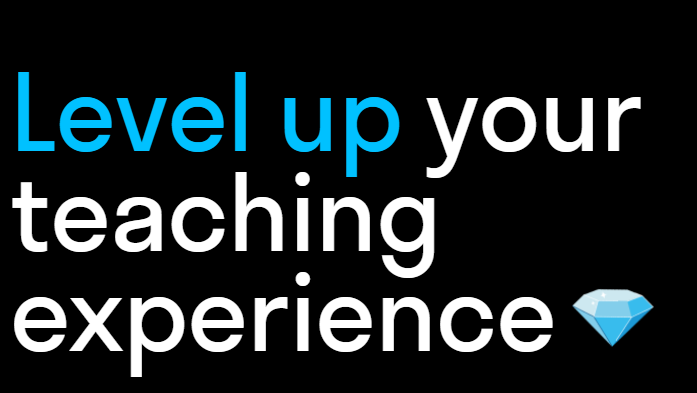Adjective + to-ing / gerund / that-clause patterns: 7 интересных упражнений для высоких уровней

Использование конструкций с глаголом и различными прилагательными может вызывать трудности у учеников. Структуры непростые, местами громоздкие, поэтому учащимся бывает сложно понять и начать ими пользоваться. Рассмотрим несколько упражнений, которые помогут научить пользоваться этим языковым инструментом.
Для начала определим несколько типов речевых конструкций с глаголам-связками:
1. Adjective + to-infinitive (прилагательное и инфинитив с частицей “to”) для прилагательных: (un)able, careful, curious, difficult, easy, free, good, hard, impossible, important, inclined, nice, prepared, ready, welcome, etc.
Example, She was free to choose the room to stay as the hotel was almost empty.
2. Adjective + -ing (прилагательное и глагол в “–ing” форме) для прилагательных: busy, awful, awkward, bad, good, guilty, terrible, etc.
Example, I was very busy yesterday throwing a party for my brother.
3. Adjective + to-infinitive or –ing (прилагательное и инфинитив с частицей “to” или форма “ing”) для прилагательных: crazy, foolish, mad, stupid.
Упражнение 1
Цель упражнения: научить использовать языковые модели «Прилагательное + ing-форма глагола, инфинитив с частицей –to или оба варианта.
Choose a card and finish the sentences
Card 1: Imagine you have just graduated from the University. You are free to…
Examples, I am free to choose a city to live in. I am free to find a job I like.
Card 2: Imagine you have just missed a plane. You feel disappointed that… You feel guilty… You are ashamed that…
Examples, I feel disappointed that I’ve missed the plane. I feel guilty coming to the airport so late. I am ashamed that I haven’t come in time.
Card 3: Imagine you are going to a New Year celebration to the kindergarten with your little brother or sister. You feel stupid… or You feel curious to… or You feel inclined to…
После некоторых прилагательных мы часто добавляем of + subject между прилагательным и инфинитивом с частицей –to.
It was so thoughtful (of you) to call me when I was unwell.
You were so thoughtful to call me when I was unwell.
Другие прилагательные, которые можно использовать в этой структуре: generous, kind, mean, brave, unprofessional, thoughtful, unreasonable.
Упражнение 2
Цель упражнения: отработка структуры “It was (adj) of (pronoun) to…” и прилагательных с частицей –to в реальных речевых ситуациях.
Предложим ученику рассмотреть иллюстрации, прочитать комментарии к ним и составить предложения, используя прилагательные в рамке.
Look at the card and make a sentence. Express your opinion using adjectives in the box and words in the task.
| brave | rude | unreasonable | kind | thoughtful | generous | unprofessional | mean |
1. (driving man) Jack was furious and drove recklessly on his way home.
Example, It was unreasonable of him to drive recklessly on his way home.
или He was unreasonable to drive recklessly on his way home
2. (man in headphones) My sister gave me her headphones to listen to music.
3. (baby boy putting on his shirt) My little brother decided to get dressed with no help for the first time!
4. (a man, jumping in a bed) My boss gave me a day off and now I can sleep as much as I can!
5. (running people) My classmates and their parents ran a marathon!
6. (a girl at a piano) She was very afraid when she played the piano on a stage.
7. (a girl with a book) My granny bought me a magnificent and expensive book!
8. (a girl cooking with mum). Thank you my dear daughter that you helped me with cooking lunch!
9. (a chef) The chef of the restaurant put too much salt in my salad.
10. (boy on a bike) My little brother didn’t allow his friend to ride his bike.
11. (two boys at the TV) My little cousin pushed me when we were watching TV.
2. It was very kind of her to give me her headphones. или She was kind to give me her headphones
3. It was brave of him to get dressed with no help. или He was brave to get dressed with no help.
4. It was generous of him to give me a day off. или He was generous to give me a day off.
5. It was brave of them to run a marathon. или They were brave to run a marathon.
6. It was brave of her to play the piano on the stage. или She was brave to play the piano on the stage.
7. It was generous of her to buy me this book. или She was generous to buy me the book.
8. It was thoughtful of you to help me with lunch. или You were thoughtful to help me with lunch.
9. It was unprofessional of him to put too much salt. или He was unprofessional to put too much salt.
10. It was mean of him not to allow his friend. или He was mean not to allow his friend.
11. It was rude of him to push me. или He was rude to push me.
Упражнение 3
Цель упражнения: пригласить ученика к дискуссии с использованием изучаемых языковых моделей.
Read the statements and agree or disagree. Which of them are the common misconceptions from your point of view?
- A person is crazy opening a shop in a faraway village; such business will get no profit.
- A student is stupid cheating in the exam. He or she will be bound to be seen.
- You must never be busy working or studying to neglect your family.
- It is stupid to underestimate a challenge facing it.
- You are free to choose any University you want to continue studying in.
4. Adjective + that-clause (прилагательное с придаточным предложением).
Little children are often afraid that their parents would leave them alone. This common fear is usually absolutely unreasonable.
Sherlock Holmes was absolutely confident that he would catch the thief.
для прилагательных: afraid, alarmed, amazed, angry, annoyed, ashamed, astonished, aware, concerned, disappointed, glad, (un) happy, pleased, shocked, sorry, upset, worried, certain, confident, positive, sure.
5. Adjective +-to Infinitive or that-clause (прилагательное и инфинитив с частицей –to или с придаточным предложением) для всех прилагательных из пункта 4, кроме aware, confident и positive.
I was glad that my project had success.
I was glad to have success at the conference.
6. Adjective +-ing or that-clause (прилагательное и –ing форма или с придаточным предложением) для прилагательных после глагола feel: awful, awkward, bad, good, guilty, terrible.
She felt good jogging every day last week.
She felt good that she went jogging every day last week.
Вам могут быть полезны и другие материалы для высоких уровней:
Упражнение 4
Цель упражнения: отработать структуру с глаголом “feel” (чувствовать).
Предложим ученику несколько ситуаций, попросим рассказать о его чувствах в этой ситуации, а также о том, что послужило причиной этих эмоций. Кроме того, попросим придумать продолжение. Для студентов, владеющих английским языком на высоком уровне, предложим в продолжении истории также использовать структуры «прилагательное + …»
Read the phrase, imagine the situation and say how you could possibly feel. Create the continuing of the story.
1. Yesterday in the afternoon you were standing in front of the locked door of your house because you had forgotten your keys inside. How did you feel?
Example, I felt awful standing in front of the door. или
I felt awful that I had forgotten the keys. или
I felt stupid standing on front of the locked door.
продолжение: Next ten minutes I was busy calling my parents and siblings to ask for keys.
2. Last Saturday was a hot and sunny day in the morning and you went jogging wearing a T-shirt and shorts but it started raining cats and dogs in two hours when you were on your way back home. You got absolutely wet. How did you feel?
3. Last Sunday you were in a café for lunch with your friends. You were joking about one of your teachers when suddenly you saw him sitting at the next table. How did you feel?
4. Last Saturday you went to the beach with your family, you were swimming in the warm sea, sunbathing and enjoying time with your family. How did you feel?
5. Last summer you wanted to take up a new hobby: photography. You wanted to start it in September. How did you feel?
6. When you were a small child you broke a cup and didn’t tell your mum about it. Mum was sad and she couldn’t find the cup. How did you feel?
Упражнение 5
You are always welcome to
Цель упражнения: отработать в речи структуру “You are welcome to (Вы можете, Вас приглашают делать что-то)”. Предложим ученику назвать, что он может / должен делать, каких действий от него ждут, в разных местах (театре, парке, полицейском участке и пр.).
Spin the wheel and tell what you are welcome to do in this place.
Examples,
(park) You are welcome to run and jump, walk and jog.
(church) You are welcome to pray.
(police office) You are welcome to tell the truth.
Упражнение 6
Advice to a friend
Цель упражнения: отработка языковых структур “be stupid to do/doing”, “be foolish to do/doing”. Известная русская поговорка гласит: «Учитесь на ошибках, но лучше на чужих». Предложим ученику дать советы другу, как не нужно себя вести, потому что это глупо.
Give some advice to your friend using “be stupid/foolish to/-ing…”.
Example,
You would be stupid to cheat at the exam. It’s too risky and dangerous to be caught.
Give your friend some advice about:
- exams,
- studying at school,
- missing lessons,
- doing homework,
- answering the phone calls,
- going to sleep,
- criticizing your classmates,
- underestimating some subjects’ importance,
- etc.
Example,
You would be foolish to choose the easiest exams. Try to choose the subjects you could really need in the future and study them.
You ‘d be stupid answering all the phone calls, ignore the calls from unknown numbers, they can be from scammers.
Вам могут быть интересны и эти статьи:
Упражнение 7
Positive thinking
Психологи говорят, что позитивное мышление помогает в разных областях жизни, поэтому предложим ученику очень полезное упражнение, ему нужно закончить предложения об одном своем дне, пытаясь найти в нем много хорошего.
Задача упражнения: закрепление в речи прилагательных структуры «Прилагательное и инфинитив с частицей –to или с придаточным предложением».
Complete the sentences.
- Yesterday I was happy to/that…
- I was amazed to…
- I was glad to/that…
- I was pleased to / that…
- I was confident that…
- I was certain to/that…
Несложные задания с близкими ученикам речевыми ситуациями позволят им научиться пользоваться языковыми структурами в своей активной речи, повышая тем самым уровень своего языка. Хороших вам уроков!

















 Анна Михайлова-Левина
Анна Михайлова-Левина 
 Анастасия Пирогова
Анастасия Пирогова 
 Вероника Аветисян
Вероника Аветисян